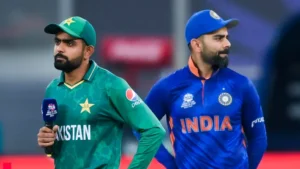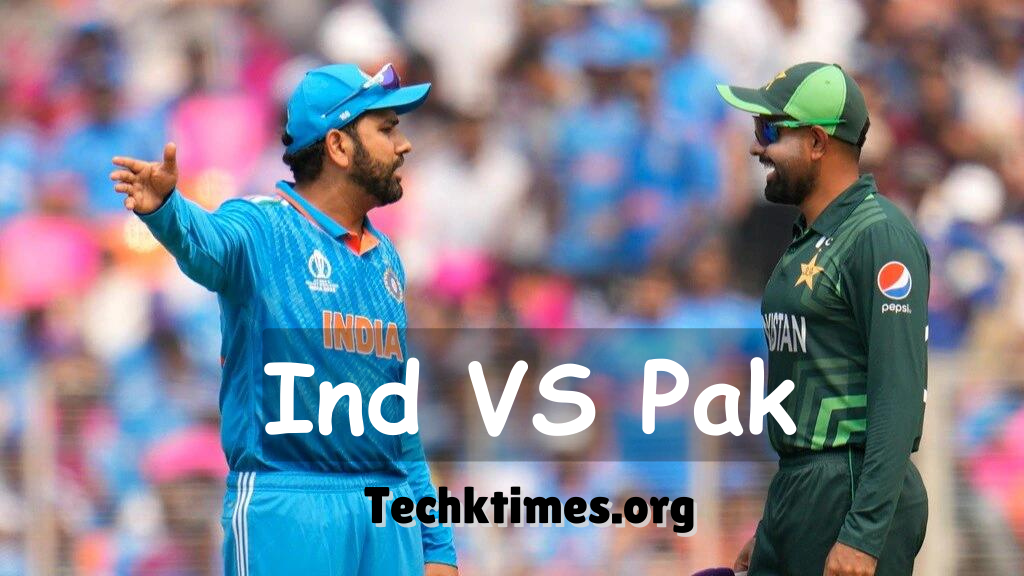Introduction to Ind vs Pak
The cricketing rivalry between Ind vs Pak is unparalleled in the sports world. Each match is not just a contest of bat and ball but a significant cultural and emotional event for millions of fans across the globe. This article delves into the intricacies of the Ind vs Pak cricket rivalry, exploring historical matches, key players, memorable moments, and the impact on both nations.
Early Beginnings Setting the Stage
The Ind vs Pak cricket rivalry began soon after the partition of British India in 1947, which led to the creation of India and Pakistan as separate nations. The first official Test series between the two teams took place in 1952-53. India, captained by Lala Amarnath, played host to Pakistan, led by Abdul Hafeez Kardar. The series was competitive, with India winning two of the five Test matches and Pakistan securing one victory. These early encounters laid the groundwork for what would become one of the most intense rivalries in cricket.
The 1978-79 Series Revival and Resurgence
After a long hiatus due to political tensions, the two teams met again in the 1978-79 series. This period marked a revival of cricketing ties and set the stage for a competitive era. Ind vs Pak, under the leadership of Asif Iqbal, toured India and played a three-Test series. India, led by Bishan Singh Bedi, showcased their strength at home, but Pakistan displayed grit and determination. The series ended with India winning 2-0, but it highlighted the emerging cricketing prowess of Pakistan.
The 1986 Austral-Asia Cup Miandad’s Heroics
One of the most iconic moments in the Ind vs Pak cricket rivalry occurred during the final of the 1986 Austral-Asia Cup in Sharjah. With India setting a target of 246 runs, the match came down to the final ball. Pakistan needed four runs to win, and Javed Miandad, facing Chetan Sharma, hit a last-ball six to clinch victory. This moment became legendary, epitomizing the unpredictable and thrilling nature of the rivalry.
1996 World Cup Quarter-Final Bangalore Showdown
 The 1996 ICC Cricket World Cup quarter-final in Bangalore was another high-stakes encounter. Ind vs Pak batted first and posted a challenging total, thanks to Navjot Singh Sidhu’s crucial innings. Pakistan, led by Aamer Sohail and Saeed Anwar, started strongly. However, the match turned in India’s favor with a fiery spell from Venkatesh Prasad, including a dramatic exchange with Sohail. India won the match, advancing to the semi-finals, and the contest became one of the most memorable World Cup matches.
The 1996 ICC Cricket World Cup quarter-final in Bangalore was another high-stakes encounter. Ind vs Pak batted first and posted a challenging total, thanks to Navjot Singh Sidhu’s crucial innings. Pakistan, led by Aamer Sohail and Saeed Anwar, started strongly. However, the match turned in India’s favor with a fiery spell from Venkatesh Prasad, including a dramatic exchange with Sohail. India won the match, advancing to the semi-finals, and the contest became one of the most memorable World Cup matches.
The 1999 Kargil Conflict and Cricket
The Kargil War in 1999 added a layer of complexity to the cricketing rivalry. Despite the conflict, the two teams faced each other in the 1999 World Cup in England. The match was played under an atmosphere of heightened security and intense scrutiny. India, led by Mohammad Azharuddin, emerged victorious, with Venkatesh Prasad’s five-wicket haul being a standout performance. The match underscored how cricket mirrored the political tensions between the two nations.
2003 World Cup Tendulkar’s Masterclass
The 2003 ICC Cricket World Cup match in Centurion, South Africa, is remembered for Sachin Tendulkar’s masterful innings. Chasing a target of 274 set by Pakistan, Tendulkar’s explosive 98 off 75 balls laid the foundation for India’s victory. His uppercut six off Shoaib Akhtar remains one of the most iconic shots in cricket history. India won the match comfortably, and Tendulkar’s performance is still celebrated as one of the finest in World Cup history.
Resuming Bilateral Series
The early 2000s saw the resumption of bilateral series between Ind vs Pak. The 2004 tour of Pakistan by the Indian team was historic, marking the first full-fledged series between the two nations in over a decade. India won the Test series 2-1 and the ODI series 3-2. This period also saw Pakistan’s tour of India in 2005, with several closely contested matches. These series were significant for promoting cricketing diplomacy and fostering goodwill between the countries.
2011 World Cup Semi-Final Mohali Magic
The 2011 ICC Cricket World Cup semi-final in Mohali was one of the most anticipated matches in cricket history. With both Prime Ministers in attendance, the match was played under immense pressure. India, batting first, posted a challenging total, with Sachin Tendulkar playing a crucial innings despite being dropped multiple times. Pakistan’s chase was thwarted by disciplined Indian bowling, particularly from Munaf Patel and Zaheer Khan. India won the match and went on to win the World Cup, but the semi-final is remembered for its high-stakes drama and sportsmanship.
ICC Tournaments and Asia Cup Clashes
From 2012 onwards, political tensions led to a suspension of bilateral series, with Ind vs Pak meeting only in ICC tournaments and the Asia Cup. The 2012 Asia Cup in Dhaka saw a thrilling encounter, with Virat Kohli’s magnificent 183 helping India chase down a daunting target. In the 2017 ICC Champions Trophy final, Pakistan turned the tables with a dominant performance, winning by a massive margin and securing their first Champions Trophy title. These matches continued to draw massive viewership and showcased the high level of cricketing skills on both sides.
T20 Encounters Short-Format Excitement
The T20 format has added a new dimension to the Ind vs Pak rivalry. The 2007 ICC World T20 final in Johannesburg saw India and Pakistan face off in a high-pressure game. India, led by MS Dhoni, won the inaugural T20 World Cup in a thrilling finish, with Joginder Sharma holding his nerve in the final over. Subsequent T20 encounters in World T20s and Asia Cups have continued to deliver excitement and drama, with close finishes and standout performances.
Cultural and Social Impact
The Ind vs Pak cricket rivalry transcends the boundary, reflecting the cultural and social dynamics between the two nations. Matches are more than just sporting events; they are spectacles that capture the collective imagination of millions. The rivalry has inspired countless stories, songs, and movies, becoming a significant part of the cultural fabric of both countries. The matches serve as a platform for expressing national pride and unity while providing moments of shared joy and heartbreak.
Iconic Players and Memorable Performances
The Ind vs Pak cricket rivalry has been defined by the performances of some of the greatest players in the sport’s history. For India, legends like Sachin Tendulkar, Virat Kohli, and MS Dhoni have produced memorable innings and match-winning performances. For Pakistan, icons such as Imran Khan, Wasim Akram, and Javed Miandad have left an indelible mark with their brilliance. These players have not only shaped the rivalry but have also inspired generations of cricketers and fans.
Recent Clashes and Future Prospects
In recent years, the rivalry has continued to captivate audiences, Ind vs Pak with matches in ICC tournaments drawing massive viewership. The 2019 ICC Cricket World Cup match in Manchester saw India extend their winning streak against Pakistan in World Cups, with Rohit Sharma’s scintillating century leading India to victory. The future of the rivalry remains promising, with both teams possessing a mix of experienced players and emerging talents. The growth of domestic T20 leagues, such as the Indian Premier League (IPL) and the Pakistan Super League (PSL), has also provided opportunities for players to interact and compete at high levels.
Conclusion
Ind vs Pak cricket rivalry is one of the most intense and storied in the history of sports. From early Test matches to high-stakes World Cup encounters, each game adds a new chapter to this epic saga. The rivalry is characterized by memorable performances, dramatic finishes, and a deep emotional connection with fans. As cricket continues to evolve, the India-Pakistan rivalry promises to remain a cornerstone of the sport, offering thrilling matches and unforgettable moments for generations to come.
Also Read: IND vs ENG Live


